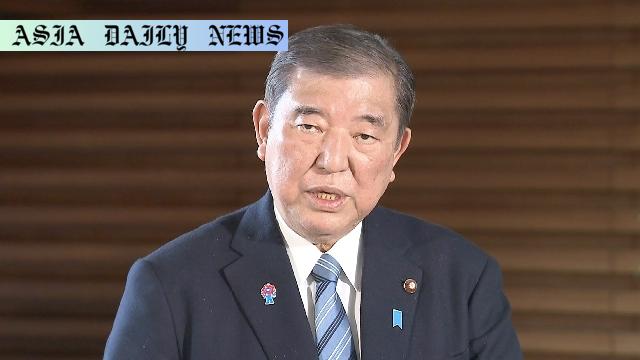Tariffs: Japan’s PM calls US’s 24% tariffs regrettable, citing economic impact and WTO concerns.

Japan PM Criticizes US 24% Tariffs
Japan’s Prime Minister Ishiba Shigeru has voiced his “extreme regret” over the recent decision by US President Donald Trump to impose a 24% reciprocal tariff on imports from Japan. In a press conference on Thursday, the prime minister emphasized the negative economic and diplomatic implications of such a move, categorically labeling it a discouraging and unilateral act by the United States. Ishiba argued that Japan had repeatedly expressed its opposition to such actions during bilateral discussions, and yet, the imposition of these tariffs seemed determined to undermine their diplomatic efforts.
Japan’s Economic Contribution to the US
Ishiba also highlighted Japan’s significant contributions to the US economy. Positioning Japan as the largest investor in the US since 2019, he cited investments totaling $418 million by Japanese automakers, which have directly contributed to the creation of approximately 2.3 million jobs throughout America. According to the PM, this demonstrates Japan’s commitment to fostering a mutually beneficial economic relationship and counters any critique that trade relations are imbalanced. However, he warned that the implementation of wide-reaching restrictive tariffs would ultimately harm not only Japanese industries but the broader global economy as well.
Concerns over WTO Compliance and Bilateral Trade Agreements
Another critical concern raised by the prime minister was the potential violation of World Trade Organization (WTO) rules and the existing Japan-US trade agreement. He stressed that the tariffs might jeopardize the credibility and functionality of multilateral trade systems which have historically underpinned global commerce. This, he suggested, could spark wider economic instability and impact other nations as well. The prime minister addressed concerns about harming international investment confidence, stating that unilateral measures like these ultimately lead to distrust in established trade agreements.
Supporting Japan’s Domestic Economy
On the domestic front, Ishiba assured the public that his government is proactively taking steps to mitigate the potential adverse effects of these new tariffs. Plans include establishing 1,000 consultation centers across Japan to assist small and mid-sized businesses that may be disproportionately impacted. Additionally, government officials will be dispatched to areas with concentrated automotive industries to survey the extent of economic disruptions and offer support. These measures may include financial aid or policy interventions to ensure struggling businesses can remain financially solvent and globally competitive.
Calls for Dialogue with US Authorities
When asked how Japan intends to respond diplomatically, Ishiba noted that he would pursue discussions with President Trump if and when necessary. He left open the possibility of arranging phone consultations or face-to-face meetings depending on the evolving situation. Meanwhile, diplomatic channels remain engaged as Japan seeks to find an amicable resolution to the trade conflict. Ishiba emphasized that his priority is to safeguard Japan’s industries and uphold the principles of fair trade while ensuring that international trading frameworks continue to flourish.
Global Economic and Trade Implications
The implications of President Trump’s tariff decisions extend beyond Japan-US relations. Economists argue that such protectionist policies could ripple into the global economy, disrupting supply chains, increasing manufacturing costs, and potentially sparking retaliatory measures from other nations. Multilateral systems designed to promote free trade, including the WTO, could face unprecedented challenges if powerful nations unilaterally impose tariffs that contradict agreed-upon rules. Ishiba’s criticism thus highlights an urgent need for a renewed focus on international collaboration, negotiation, and adherence to trade agreements to prevent a slide into global economic instability.
Commentary
Impact of US Tariffs on Japan and Beyond
The imposition of a 24% reciprocal tariff by the US on Japanese imports marks a significant shift in Japan-US relations. As Prime Minister Ishiba articulated, such unilateral trade measures risk undermining years of economic cooperation and mutual benefit. The contributions of Japanese investments in the US economy, particularly in the auto industry, underscore the irony of such protectionist actions. These investments have not only supported millions of jobs in the US but have also fostered an interconnected global economy. The tariffs threaten to disrupt this synergy, possibly causing long-lasting setbacks for businesses on both sides.
Concerns for Free Trade and Global Stability
Beyond the immediate financial impact on Japan, these tariffs pose a greater existential threat to global free trade. Ishiba’s concerns about the consistency of these measures with WTO rules are well-founded. The World Trade Organization has long served as a bulwark against arbitrary trade restrictions, ensuring that countries adhere to a set of agreed-upon principles. Actions like these erode trust in the global trade system, potentially paving the way for other nations to follow suit with their restrictions. Such moves could lead to a fragmented international economy with disjointed policies and retaliatory actions.
Lessons and Forward Strategies
For Japan, this situation serves as a wake-up call to diversify its economic strategies. Overreliance on certain markets makes countries vulnerable to abrupt policy changes, as seen with these tariffs. Strengthening ties with other trading partners and exploring new markets in Asia, Europe, and beyond could unlock opportunities for growth while mitigating the risk of economic dependence on any single nation. Additionally, diplomatic engagement with the US will remain essential. Resolving this issue amicably would not only secure Japan’s economic interests but also set a global precedent for addressing trade disputes constructively.


